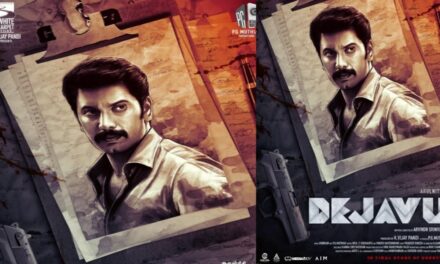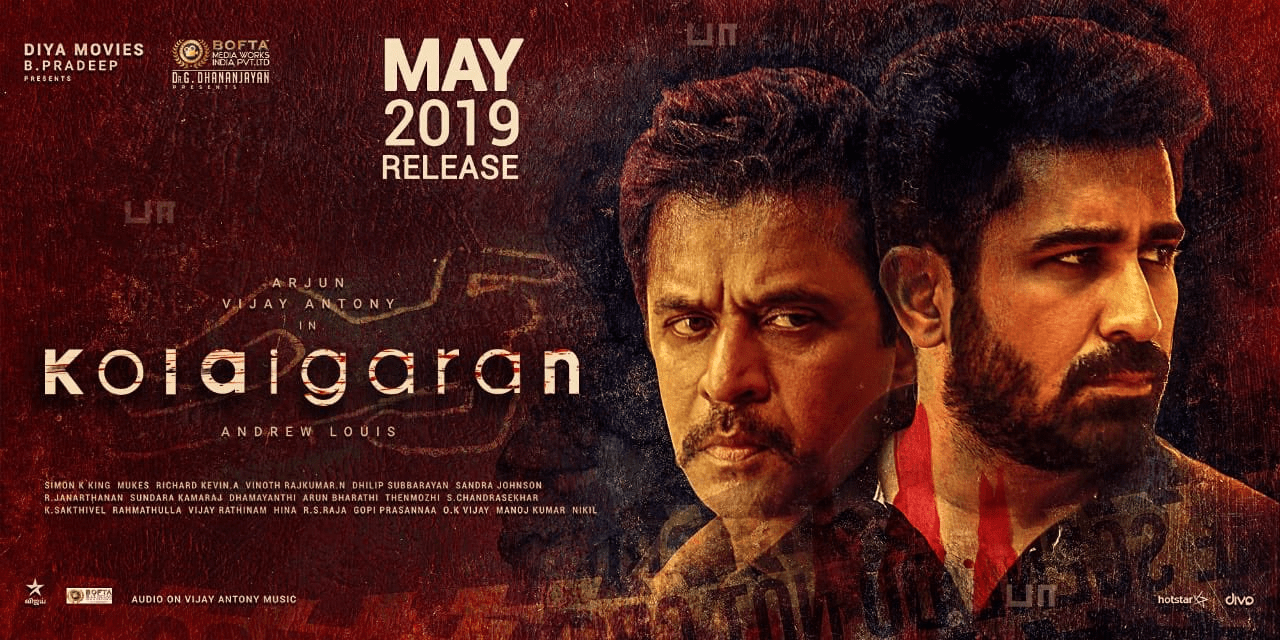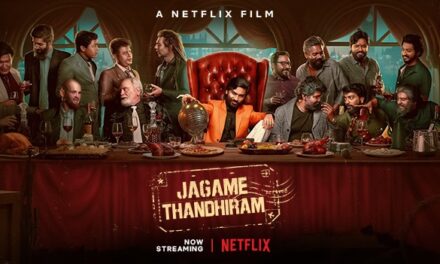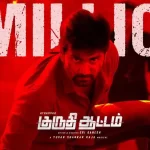Director: Sudha Kongara
Cast: Suriya, Aparna Balamurali, Paresh Rawal
There is a lot of chatter about breaking barriers in Soorarai Pottru. The obvious ones around which the film is themed are social barriers, as in equal access to technology and opportunities for all, irrespective of caste and class (there’s a literal scene during the end credits where the barrier separating the first-class cabin inside an aircraft is broken using sledgehammers).
On a more personal level, there is also the breaking of the male ego barrier, where the wife who runs a successful bakery business happily takes over the family’s breadwinning responsibilities for a good number of years (I promise, this is how the story goes and it wasn’t intended as a bun..sorry pun)! And lest we forget, the film has released directly on OTT (Amazon Prime), a major barrier breaking exercise in itself given the historic relevance in our parts of Deepavali release frenzy in theatres.
Soorarai Pottru tells the story of Nedumaaran or Maaran, played by Suriya, an entrepreneur from a small village in Tamil Nadu with larger than life ambitions. The film is loosely inspired by the book Simply Fly that was authored by Capt Gopinath (the founder of Air Deccan) recounting his own life story.
Maaran has always been quite the activist (he also calls himself a socialist later on in the film and his best friend Chaitanya is nicknamed Che). There is a short flashback from his teenage years where we see him involved in violent protests, to have their town’s railway station listed as an official halt for passenger trains. He wants to bring planes to his people next. What ignites this ambition is a distasteful incident, where he fails to reach home in time for his father’s funeral, thanks to exorbitantly priced flight tickets.
This coupled with a stint in the Air Force gives him an idea, that of operating a ‘low cost’ airline in the country. The prevailing high prices are only the product of poor industry practices and an ever-increasing class divide, he argues. What if we make the airline no-frills? What if we side-step agents and allow direct online bookings? What if we just lease aircrafts instead of buying them outright, and while we’re at it, why not have these planes do multiple daily round trips? And finally, why do we require these extra-large fuel-sucking planes anyway? In his own words, why can’t we just have an airline that’s the equivalent of an ‘Udupi hotel’ in the sky, instead of all this 5-star opulence?
Maaran’s ideas are solid, but like any other entrepreneur, he soon realizes his journey’s going to be one full of turbulence. In fact, Soorarai Pottru’s biggest win lies in how it translates these travails of entrepreneurship authentically on to the screen. Maaran faces rejection from all banks and about twenty-odd venture capitalists, before finally managing to get one VC on board, who then ends up backstabbing him anyway. These plot points seemed silly at first but I soon realized how difficult it must indeed be for a first time entrepreneur, with no financial or legal background, to verify such complex VC arrangements to the letter. Maaran also incurs the wrath of his potential competitors, the country’s existing aviation oligopoly. The chief antagonist here is Paresh Goswami (Paresh Rawal), the owner of a rival airline. They all look down on Maaran as a rogue new entrant who poses a threat and use every possible influence to sabotage his repulsive schemes. And finally, there’s also Government red tape and apathy. It is echoed more than once how ‘even Ratan Tata’ had to wait outside the DGCA’s office for 20 years to get his aviation permit. Maaran’s situation is no different and it requires the intervention of none less than the President of the country to get him out of his predicament!
And this brings me to the subject of what I thought could have been better in the film. For starters, and there were at least two instances, where I thought conflicts were resolved a little too conveniently. Now let me be honest, I haven’t read the book, and hence don’t know for sure if for instance Mr Abdul Kalam really intervened to help Air Deccan obtain its permits. But even if this really were the case, I thought these scenes played out too procedurally and could have been more vibrant and fleshed out. I also found the musical interludes annoying. I know music forms a big part of Sudha Kongara’s stylistic imprint. This was apparent in her earlier feature Irudhi Suttru, and more recently even from her segment in Putham Pudhu Kaalai, that had strikingly good music. Here GV Prakash’s tunes never really hit those levels, and though there are hardly any full length songs per se, this film’s story demanded pacy narration with bare minimum interruption.
The romantic track between Maaran and Sundari (Aparna Balamurali) ran a similar risk. But pleasantly enough, Suriya and Aparna’s on-screen chemistry is dazzling. Aparna revels in her portrayal of Sundari, a hugely successful businesswoman herself, and her character’s arc is shaped wonderfully with some strong, incisive writing by Sudha.
Entrepreneurship as a theme is a low hanging fruit for writers, given the scope it provides for a range of conflicts and drama. For some reason though, it’s been underexplored by the film fraternity, and I’m happy Sudha Kongara picked this story to tell. Soorarai Pottru might not always pack a punch like Irudhi Suttru did, but still manages to soar way above many of Suriya’s other recent outings.
Overall rating: 3/5










